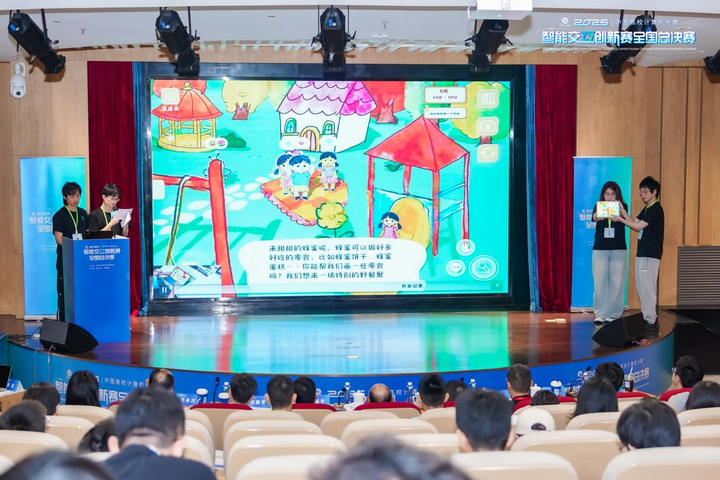Ilya’s Shocking Testimony: Altman’s Wrongdoing, Mira’s Drama, and OpenAI’s Near-Merger with Anthropic
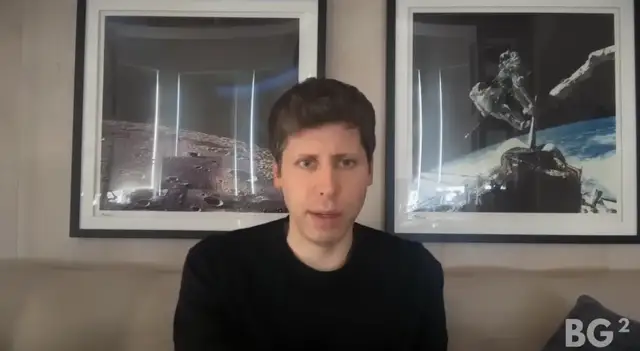
Silicon Valley Drama — Altman, Musk, and Ilya
The saga of Sam Altman, Elon Musk, and Ilya Sutskever continues — Silicon Valley’s very own _“Empresses in the Palace”_, a tangled mix of ambition, rivalry, and philosophical clashes.
Altman Breaks Silence on His OpenAI Equity
Altman recently made a rare public comment on his zero equity stake in OpenAI:
> I really wish I had accepted equity earlier — that would have put a big dent in all the conspiracy theories.
Sharp-eyed observers have long noted that Altman holds no shares in OpenAI — something he had never explained in detail until now.
The trigger? A newly revealed 52-page testimony from Ilya, recounting the boardroom intrigue around Altman’s past ouster — testimony spurred by none other than Elon Musk.

---
The Social Media Exchange
- Altman’s Tesla Refund Receipt
- Altman shared a screenshot of his Tesla order refund — seven years after purchase, with no car ever delivered.
- Musk’s Response
- Musk claimed the refund was processed within 24 hours — then accused Altman directly:
- > You stole a non-profit organization.

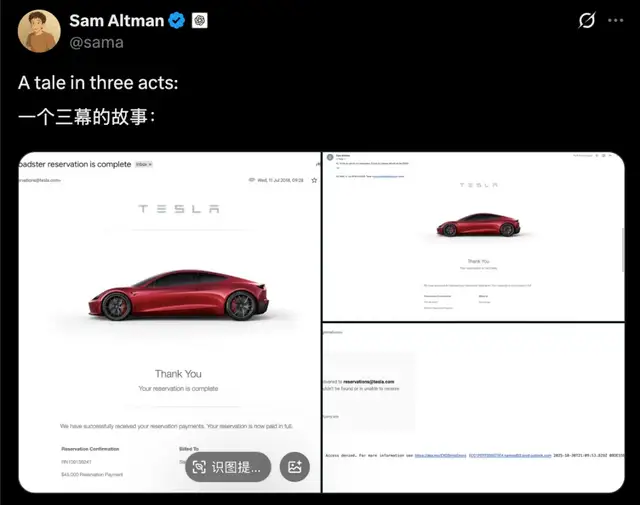
- Musk Escalates
- Reposting Ilya’s deposition, Musk poured fuel on the fire:
- Altman’s Counterattack
- Altman replied that he had turned Musk’s “legacy” into the world’s largest nonprofit and defended the restructuring process:
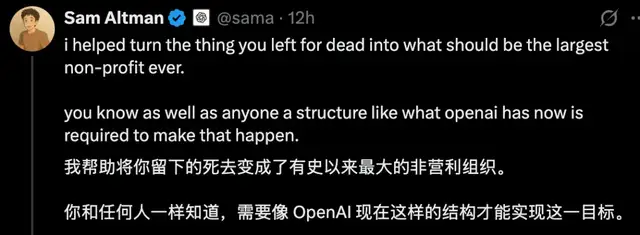

---
Regret, but Driven by Passion
Altman’s no-equity stance dates back to 2019, when OpenAI restructured into the capped-profit LP model.
At that time:
- He became CEO with no shares.
- Earned only a base salary — rare in Silicon Valley.
Even when reports suggested the board might grant him 7% equity, the official announcement once again confirmed zero holdings.
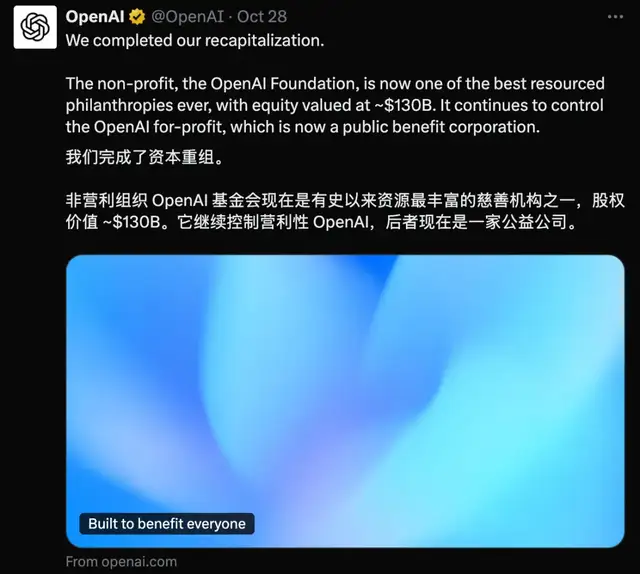
Why No Equity?
Altman has often stated:
- He’s already financially secure from ventures like Loopt, Reddit, and multiple investments.
- His motivation is love of technology — not money.
Yet in his latest statement, Altman:
- Concedes not accepting equity may have been a mistake, as it fuels speculation.
- Emphasizes his belief in shaping “the course of technology and society.”
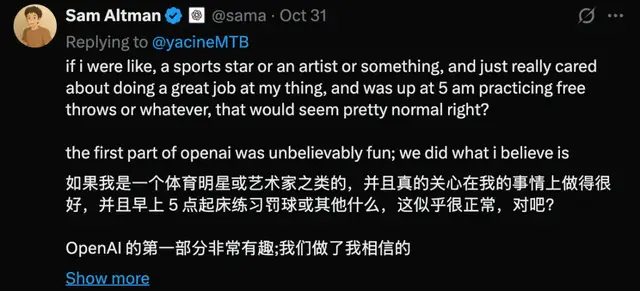
Personal Challenges
- Calls OpenAI’s work “the most important scientific mission of our generation.”
- Admits it’s “excruciatingly painful” and he has considered quitting.
- Notes that having children has made sustaining his workload harder.
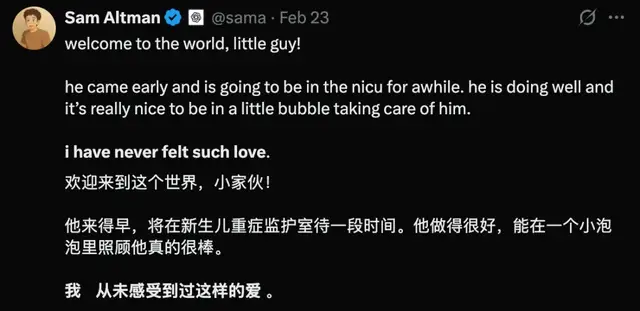
---
OpenAI’s Special Equity Rule — Power Over Profit
OpenAI’s governance ensures that non-shareholding board members can vote when the safety mission conflicts with profit motives.
This means:
- Altman’s lack of equity may actually increase his decision-making neutrality.
- He can prioritize “Safety first” over rapid commercialization — a stance investors often resist.
Still, Altman has indirect ties:
- Investments in OpenAI partners like Rain Neuromorphics.
- Past indirect holdings via Sequoia Capital.
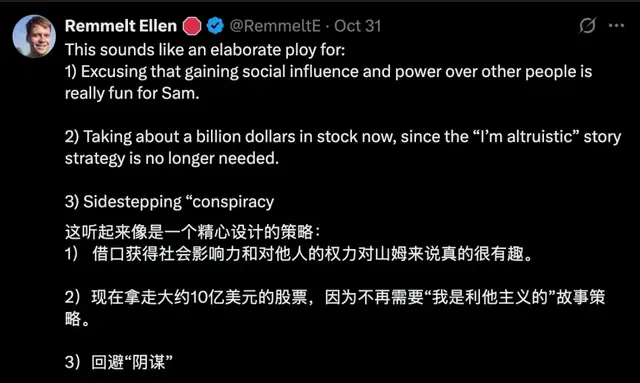
---
The Cost of Zero Shares
OpenAI’s hybrid nonprofit–for-profit model has caused tension:
- Altman’s ouster was partly due to misalignment between mission and business.
- Conflicts with Musk spotlight these governance issues.
Ilya’s 52-Page Testimony
The deposition details:
- A year-long plan by Ilya and then-CTO Mira Murati to remove Altman.
- A memo citing Altman’s alleged dishonesty and manipulation.
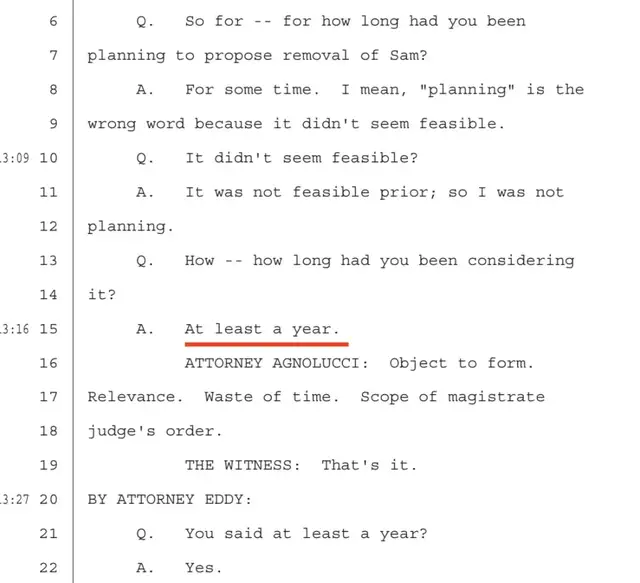
Examples include:
- Discrepancies over GPT-4 Turbo’s safety committee approval.
- Fostering rivalries between executives.
Ilya also claimed Mira said Altman was pushed out of Y Combinator — a statement denied publicly by co-founder Paul Graham.
Other revelations:
- Ilya documented claims of Greg Brockman’s workplace bullying.
- OpenAI once nearly merged with Anthropic.
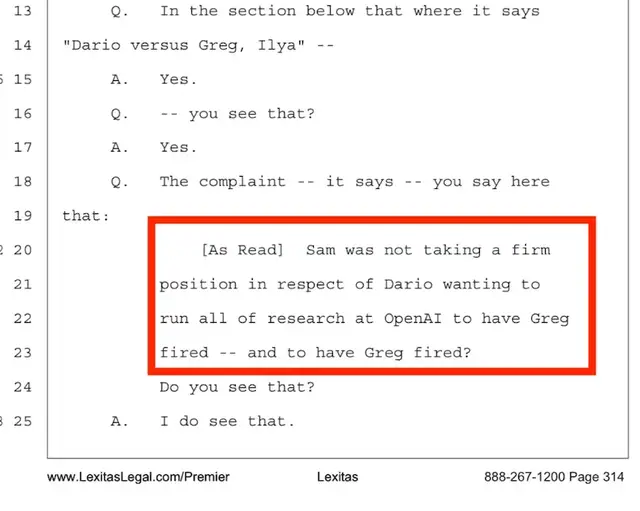
In the end, employee backlash and threats to resign en masse led to Altman’s reinstatement.
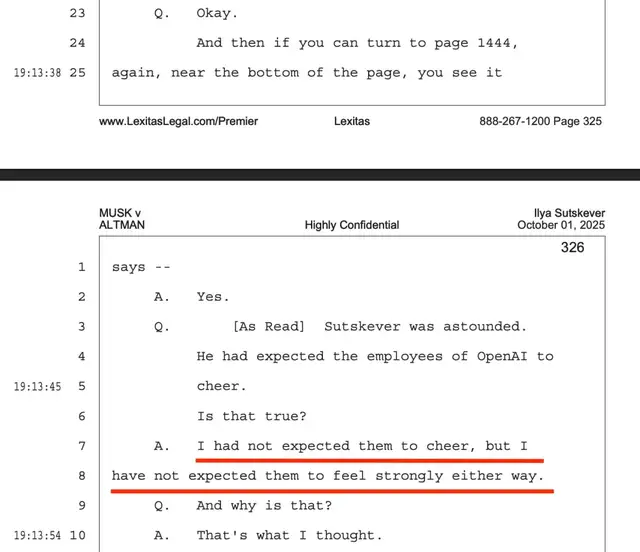
---
Aftermath — Profit vs. Mission
Post-drama:
- Ilya left to create an AGI safety-focused company.
- Musk filed suit against Altman for “betraying” OpenAI’s nonprofit origins.
OpenAI today:
- Annual revenue exceeds $13B.
- Projected to hit $100B by 2027.
The company is reportedly mulling an IPO with a $1 trillion valuation — potentially the largest in history.
For Altman, running a nonprofit-structured company with trillion-dollar valuation may be more appealing — and powerful — than holding shares.
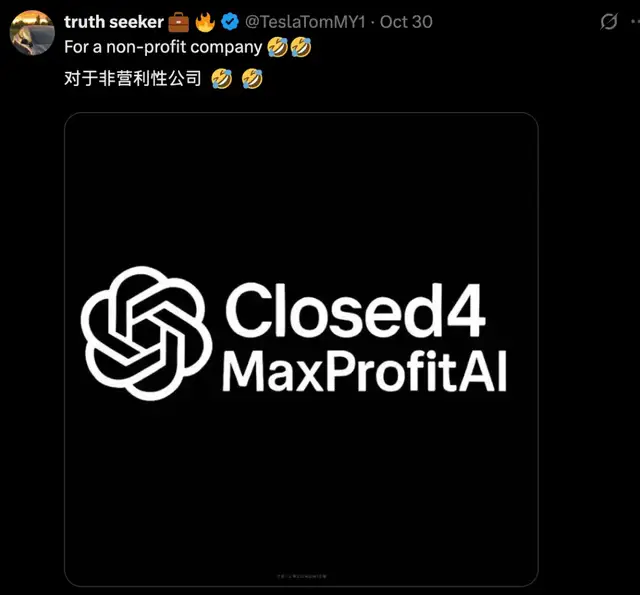
---
Lessons for AI Creators
In the wider AI industry:
- Balancing safety with commercial growth is crucial.
- Creators can adopt similar strategies to retain control while scaling globally.
Platforms like AiToEarn官网 exemplify this approach:
- Open-source ecosystem for AI-driven content creation & monetization.
- Supports cross-platform publishing, analytics, and AI模型排名.
- Distributes simultaneously across Douyin, Kwai, WeChat, Bilibili, Xiaohongshu, Facebook, Instagram, LinkedIn, Threads, YouTube, Pinterest, and X (Twitter).
---
References
- https://x.com/sama/status/1983941806393024762
- https://www.lesswrong.com/posts/9mp6vBwxitoZcvDmG/ilya-sutskever-deposition-transcript
- https://x.com/distributionat/status/1984924017628000296
- https://techcrunch.com/2025/11/02/sam-altman-says-enough-to-questions-about-openais-revenue/
- https://techcrunch.com/2024/12/19/sam-altman-once-owned-some-equity-in-openai-through-sequoia/
- https://www.theinformation.com/articles/openai-founder-discusses-anthropic-merger-talks-internal-beefs-deposition?rc=p2bxcy
- https://www.youtube.com/watch?v=Gnl833wXRz0
---
If you’d like, I can produce a concise timeline infographic mapping the Altman–Musk conflict, Ilya’s deposition, and OpenAI’s restructuring — this would make the events easier to follow. Would you like me to create that next?

